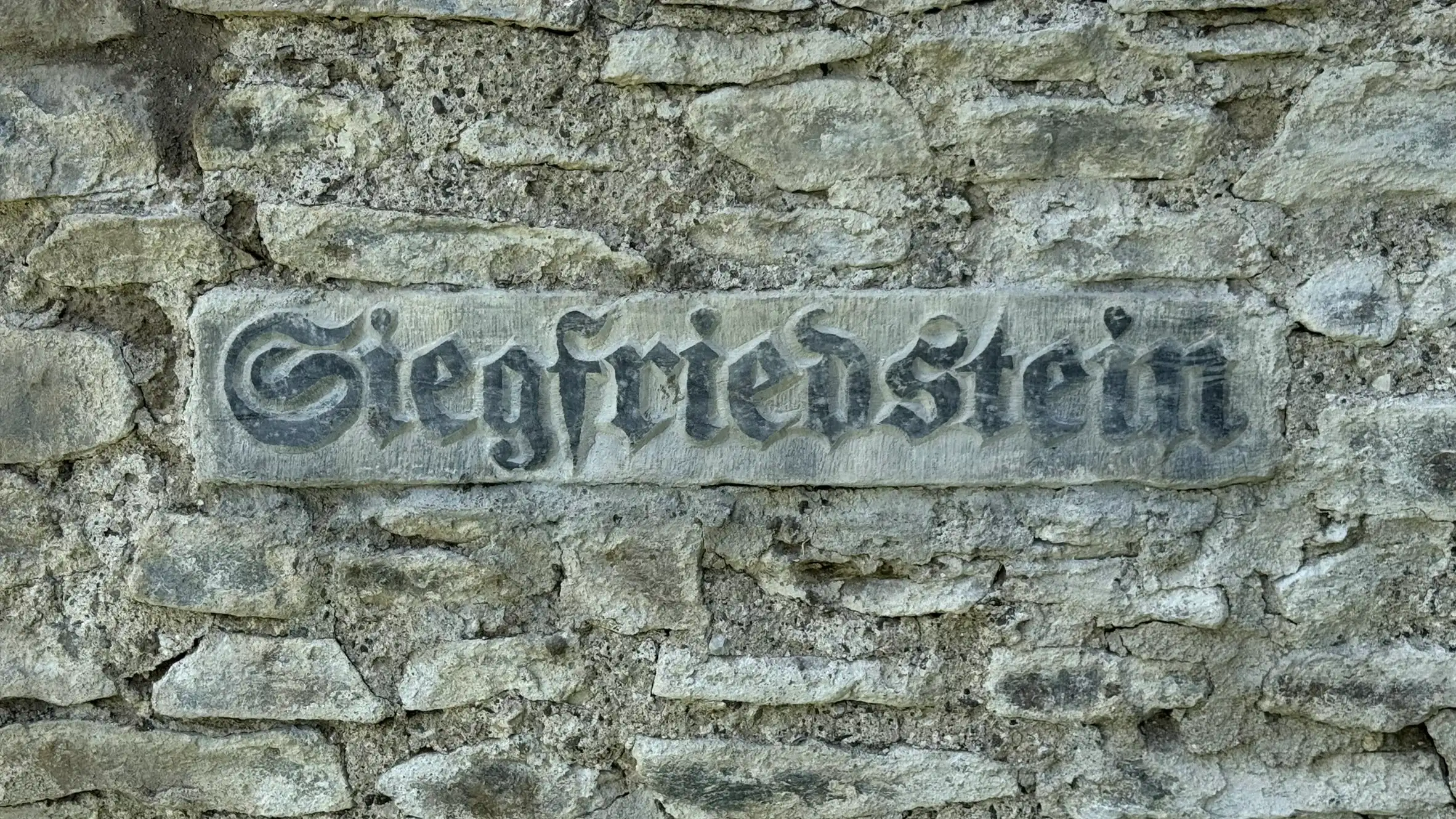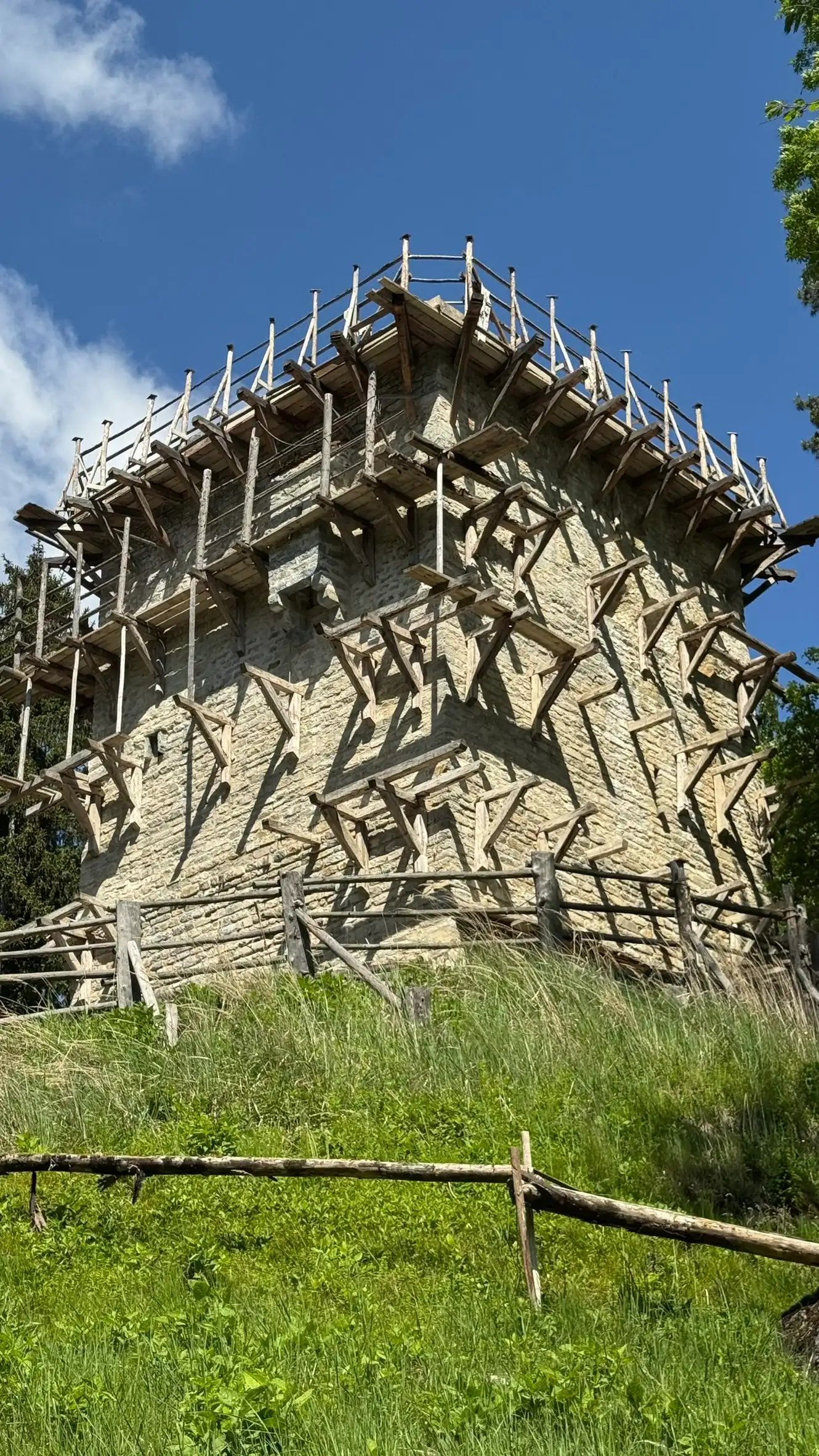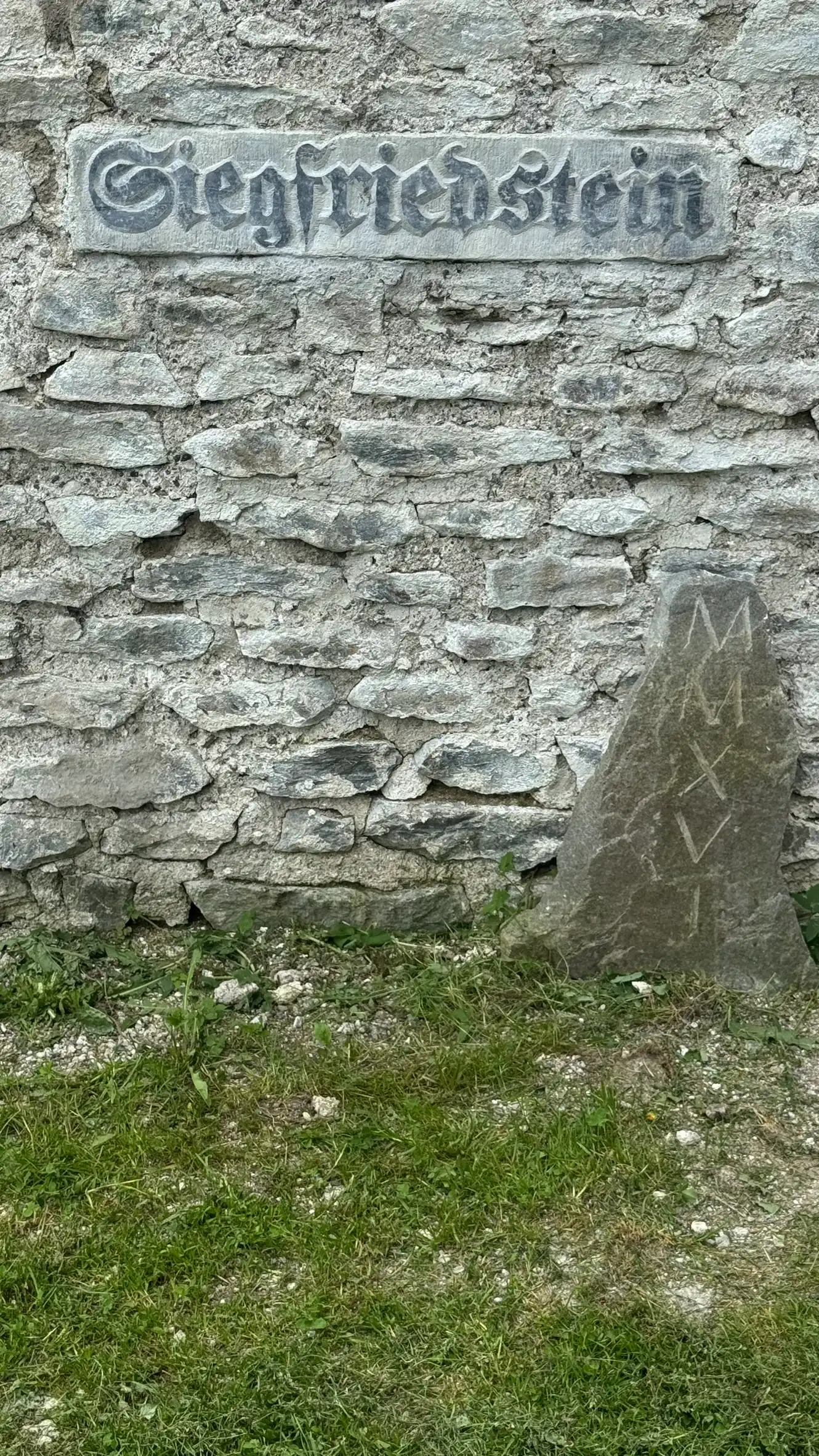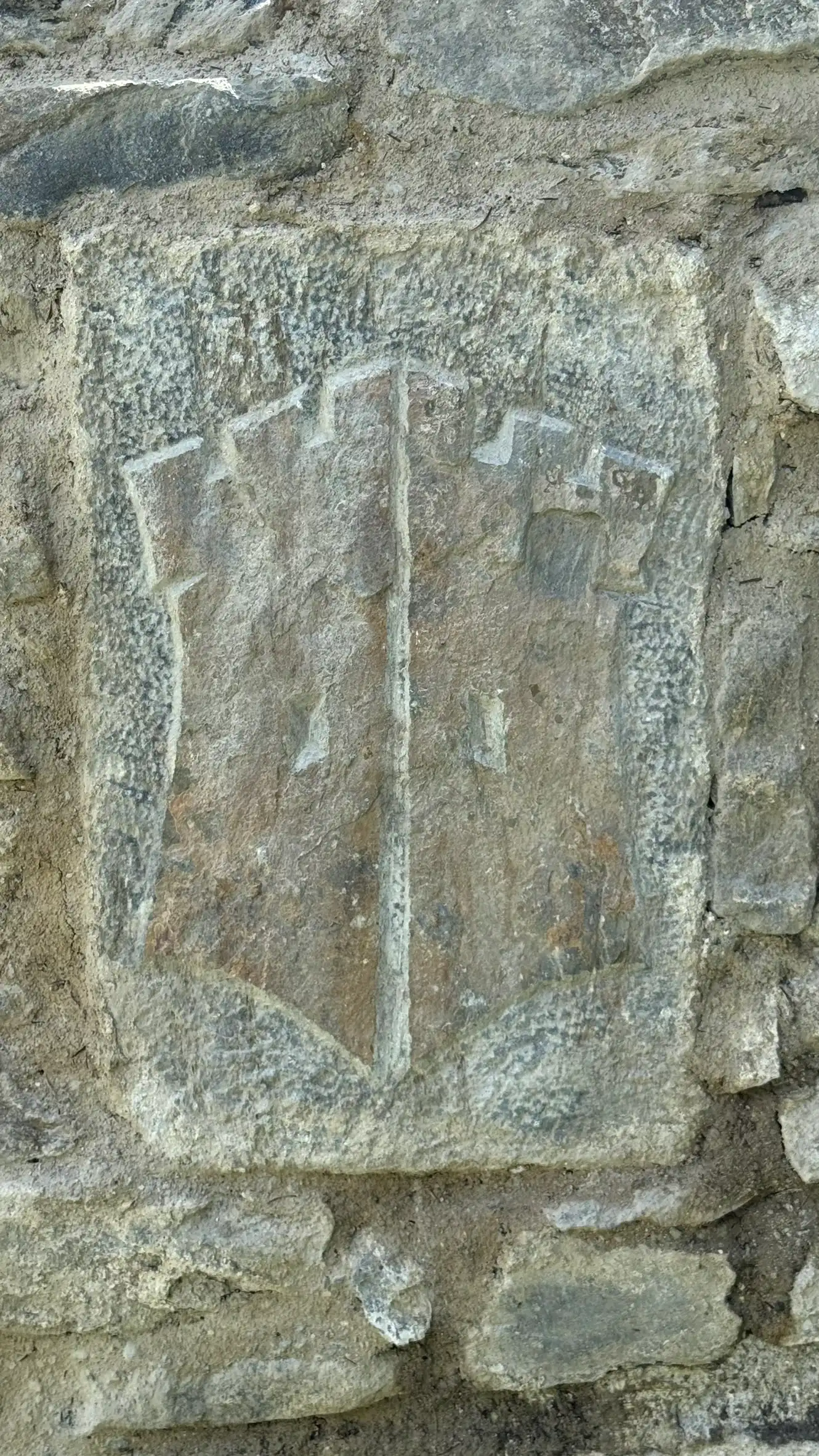Siegfriedstein
A Virtual History
Alongside the design of the future castle, its naming also holds significance. Based on historical sources, a virtual history for the castle has been created. Read more …
The Lebenau Family
Siegfried III of Lebenau, still a young man at the time, married Kunigunde of noble descent at the request of his mother, who managed the affairs of the house until he came of age. However, he was never devoted to her and lived in a clandestine (secret) relationship with Bertha, the daughter of a vassal. Around the year 1170, a boy was born from this deep affection, and he was named Reinbert after his maternal grandfather. When a second husband was sought and found for Mathilde—Heinrich of Trixen, who would die before 1180—and Siegfried and Otto’s mother left the comital court, fundamental disputes soon arose between the brothers of the House of Lebenau. When Siegfried III took the cross in 1189 alongside his brother-in-law Konrad of Dornberg, joined Emperor Frederick I Barbarossa on a crusade to Palestine, and died the following year, his brother Otto I succeeded him as sole heir and new Count of Lebenau.
Siegfried’s son Reinbert, by then a skilled young warrior, had to flee upon hearing of his father’s death, fearing pursuit by his uncle Otto, who was anxious to protect his inheritance. He escaped into exile with his relative Diethelm of Krenkingen, Abbot of the Reichenau Monastery, who had recently been appointed Bishop of Constance. At Reichenau, Reinbert met Diethelm’s nephew, Eberhart of Regensberg, who was also living at the monastery. A close friendship quickly developed between the two young men of the same age. Bishop Diethelm soon recognised that the vigorous young Lebenauer could still be of great service to his nephew.
The following years saw Eberhart dedicated primarily to study, while Reinbert honed his martial skills. After the death of Bishop Heinrich of Brixen in 1195, the Abbot’s close ties to the House of Hohenstaufen enabled him to secure the bishopric for his exceptionally gifted nephew the following year. Reinbert, who had never taken holy orders, accompanied his friend to Brixen with the consent and blessing of Diethelm of Krenkingen, serving as his trusted attendant and companion. He was present at Eberhart’s ordination as a priest—then not uncommon to be ordained only upon elevation to bishop.
On 20 April 1200, when Bishop Eberhart was elected Archbishop of Salzburg as Eberhard II, Reinbert accompanied his now-archiepiscopal lord and friend to Salzburg. The new archbishop immediately demanded a settlement for Reinbert from Count Otto I of Lebenau. The count could do nothing but obey the command of the powerful church prince. Over the following decades, Reinbert remained closely bound to Archbishop Eberhard II in friendship and loyalty, overseeing his personal security and discreetly managing political affairs for him—without, save for two exceptions, ever appearing in official records.
As early as spring 1201, Reinbert was sent to the archiepiscopal residence in Friesach, in the rising southern centre of ecclesiastical power, to assess the situation on behalf of the new archbishop. There he was hosted by the commander of Friesach Castle, Heinrich, at his residence on Petersberg above the town. Eberhard soon followed, visiting Friesach for the first time in the summer of 1201—a place the great churchman would come to favour in the years ahead.
On 6 January 1203, Reinbert appeared for the first and only time—an oversight by the scribe—as a witness in an official charter of the archbishop, where he is referred to as Reinbertus miles de Frisah. Around 1200, the term miles was commonly used to denote the emerging class of knights who served as warriors, clearly indicating the social ascent achieved by Reinbert, the illegitimate son of Count Siegfried III of Lebenau. Between 1201 and 1203, Reinbert met and fell in love with Hedwig, the daughter of Friesach’s vice-dominus, Amilirch. With the blessing of Archbishop Eberhart, he decided to start a family. Out of gratitude for “the many services rendered to us,” as the deed of donation puts it, the archbishop gifted Reinbert a small estate south of the town.
As a close confidant and loyal follower of his lord—constantly under the watchful eyes of the archbishop’s enemies—Reinbert had a residential tower built on a hill above his estate. He named it SIEGFRIEDSTEIN, in honour of his lineage and potential future claims to the title of Count of Lebenau.




